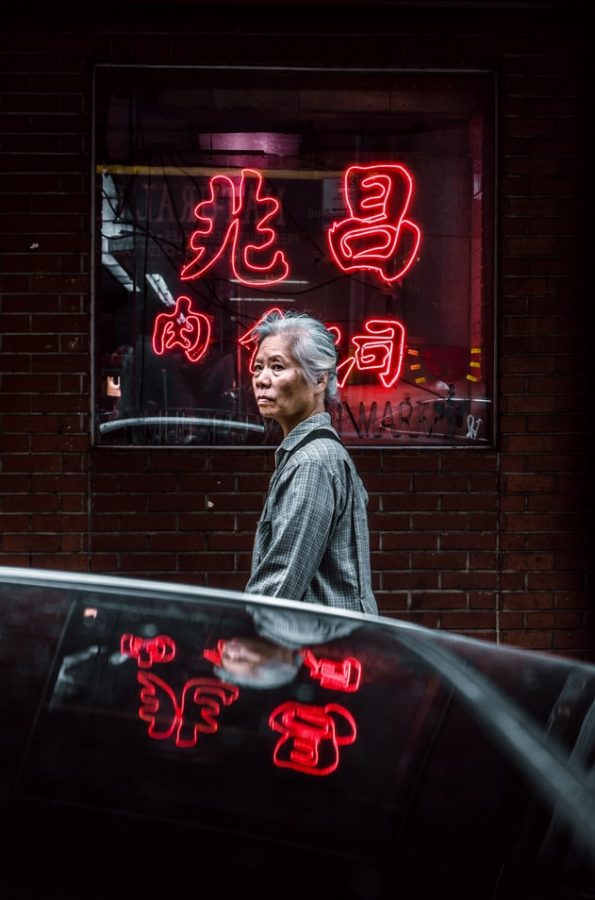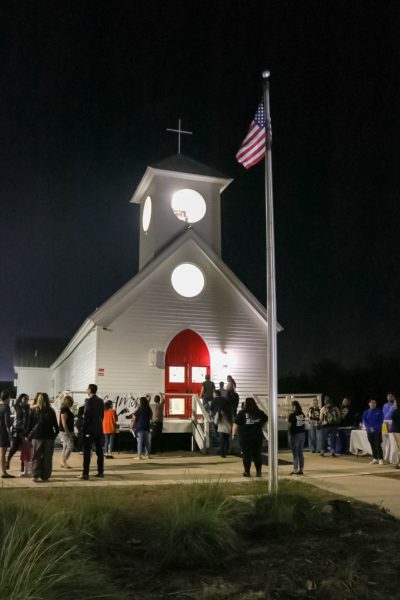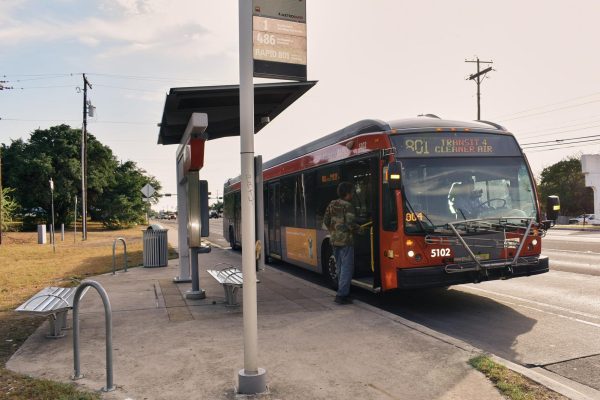Criminal justice professor Carsten Andresen explains what fueled the recent rise in hate crimes against AAPI community
Donald J. Trump’s rhetoric behind COVID-19 is said to have sparked and influenced the rise in hate crimes against the AAPI community. After a recent shooting, many Asian Americans feel unsafe.
On March 16, eight people were shot and killed at three separate massage parlors in Atlanta, GA and the nearby town of Cherokee. Six of the eight victims were Asian-American women. Although the killings were not labeled as a hate crime, many are concerned that this is an escalation of the recent rise in hate crimes and racist incidents against Asian Americans and Pacific Islanders.
On March 14 in San Antonio, TX, ramen noodle restaurant Noodle Tree was vandalized with several racist statements after the store’s owner spoke out in objection to Gov. Greg Abbott’s removal of the mask mandate.
The organization Stop AAPI Hate received 3,795 reports of racist/hate incidents directed towards Asian Americans and Pacific Islanders in the U.S. between March 19, 2020 and Feb. 28, 2021. These incidents occurred in all 50 states and Washington D.C. Out of the 3,795 reports, verbal harassment made up 68.1%, shunning made up 20.5% and physical assault made up 11.1%. 7.2% of people who reported an incident said they were spat on or coughed at. California (1,691), New York (517) and Washington state (158) had the highest number of incidents, with Texas (103) having the fourth highest, closely followed by Pennsylvania (97), Massachusetts (96) and Illinois (92). Stop APPI Hate shows that Asian American women are 2.3 times more likely to be the victim of one of these incidents than Asian American men. The incidents reported to Stop AAPI Hate likely only represent a small portion of the incidents which actually occurred.
Carsten Andresen, a criminal justice professor at St. Edward’s University, discussed how the term “hate incidents” is better than “hate crimes” to describe the increase of Asian American discrimination in the United States.
“They use the term hate incidents because there are a lot of things that some people don’t treat as crimes, maybe they should, maybe they are crimes and the police are just not applying the law there,” Andresen said. “There’s a lot of incidents like if you’re in a grocery store and someone starts to harass you. While that might not count as a crime, they are going to count that as an incident.” This distinction allows racist actions towards a group of people to be recorded even if they don’t violate the law.
Andresen explained how hate crimes are hard to prove because to prove that someone had “a racist intent…will make you basically be a mind reader.”
“I would just look at the percentage of people who are Asian who live near you. Is it 8%? Is it 12%? Whatever that percentage is, [that] you just happened to target three businesses that are owned by people who are Asian…and of the victims six out of the eight just happened to be Asian women. That definitely sounds like there’s a racist intent and a sexist intent and a misogynistic intent,” Andresen said.
There is also the popular belief that the rhetoric surrounding COVID-19 may have influenced these actions.
“I think there’s two things to begin with that are going on,” Andresen said. “The first one is you have the absolute most stressful event in most of our lives. And then we have a president and other elected officials including a senator in our state (Texas), who come out and basically blame China for the virus. [And] then they start to indiscriminately use racist language which equates COVID-19 with people who are Asian. That may lead to a regular person starting to have discriminatory or racist views, but somebody who’s already prepped and primed, somebody who’s already angry…you’re playing with fire there. Everyone is responsible for their own behavior, but to have these images and messages out there that blame Asian people is the beginning.”
Many who started using terms like “China virus” or “China flu” claimed that those who were opposed to the terms were against freedom of speech or politically correct.
There is also a history of discrimination against Asian Americans in the U.S., such as the Japanese internment camps, or the laws which stripped Chinese Americans of rights to marry or own property.
On March 19, the House of Representatives held a hearing in which Rep. Grace Meng (D-NY) proposed a committee to deal with COVID-19 related racist incidents. An opposing opinion came from Rep. Chip Roy (R-TX), who brought up criticisms of the Chinese government and freedom of speech. His comments have received backlash from many, saying he is ignoring the purpose of the committee which does not have any speech mandates, but would propose guidelines for how to discuss COVID-19.
Director of Student Diversity and Inclusion Erica Zamora sent a community-wide email offering support to Asian and Pacific Islander students who might need a space to talk and process.
“We remain committed to holding ourselves and our community accountable in the pursuit of dismantling systemic racism,” Zamora said.
Following this most recent attack in Georgia, it is unlikely that the shooter will be charged with a hate crime because he stated that sex addiction was the motivation for the killings. Hate crime charges are very new to Georgia, only being signed into legislation after the shooting of Ahmaud Arbery in 2020. Those convicted of a hate crime in the state will have time and fines added to their sentence.












